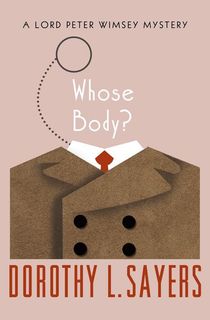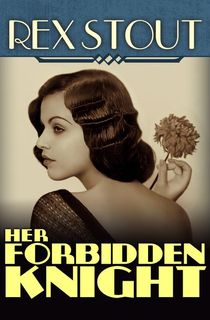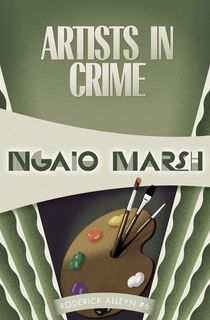Every great detective needs a sidekick, someone to do a bit of legwork, fire the occasional gun, acts as the reader’s eyes and ears, and—most important of all—allow the sleuth to show everybody how absolutely brilliant they are. Here are eight of classic mystery's best sidekicks.
Anonymous — C. Auguste Dupin’s unnamed sidekick

The Murders in the Rue Morgue
C. Auguste Dupin’s unnamed sidekick is the first in all mystery fiction and arguably the most important. Because without him where would we be? In Edgar Allen Poe’s three genre-creating tales of detection featuring Dupin, it’s the eccentric French sleuth’s anonymous Parisian housemate who chronicles events at the Rue Morgue and elsewhere. He also introduces us to the detective’s logical methods and remains understandably awestruck with wonder as Dupin unravels apparently unsolvable crimes. Aside from his passion for antiquarian books, we learn little about Poe’s narrator. He’s possibly the biggest mystery in the trio of cases he writes about.
Dr. John Watson — Sherlock Holme's sidekick

A Study in Scarlet
The archetypal detective’s sidekick. Sherlock Holmes’ faithful companion and chronicler is an ex-army medical officer who was wounded in the Afghan War of 1879 (though whether in the shoulder or the leg he never seems quite able to remember). Watson is dogged, brave, long-suffering and—like many male sidekicks to come—occasionally distracted by an attractive woman. Helpfully for the reader, Watson is just a little bit slow-witted, a fact that allows Holmes to demonstrate his own superior intellect to theatrical effect. For a London doctor, Watson is also surprisingly unburdened by work, which is handy for all those times Holmes rouses him in the middle of the night and demands he accompany him on some adventure (“And bring your trusty revolver with you, Watson!”)
Ariadne Oliver — Hercule Poirot's sidekick

Elephants Can Remember
Agatha Christie's Hercule Poirot’s best-known sidekick is Captain Hastings, a stolid British Army Officer who is more or less a direct descendant of Dr. Watson. In truth, Hastings appears in only seven of the 33 Poirot books. Far more interesting than the plodding and predictable Hastings is Ariadne Oliver, Poirot’s assistant in mysteries such as Cards on the Table and Elephants Can Remember. Oliver is the author of a series of popular mysteries featuring a Vegan Finnish detective. She is filled with imaginative theories and womanly intuitions, but she also has a sharp understanding of the criminal mind. Oliver was, of course, based on Christie herself and allows the novelist to indulge in some entertaining self-mockery. She sometimes even points out mistakes that occur in previous stories.
Mervyn Bunter — Lord Peter Wimsey’s butler

Whose Body?
Lord Peter Wimsey’s butler, Bunter is a true Gentleman’s Gentlemen after the style of PG Wodehouse’s Jeeves. But though Dorothy L. Sayer’s creation may be an expert on clothes and manners, a brewer of the finest coffee, and a shaker-up of marvelous cocktails, there’s more to Bunter than just that. He’s loyal—if occasionally sarcastic—and immensely brave (he saved Wimsey’s life in World War One), an expert on antiquarian books, and a keen photographer, who carries a pocket-sized camera with him at all times. His position as a servant also gives him access to the sort of “backstairs” gossip that often helps Wimsey crack a case. The close relationship between two men of such different social backgrounds also allows Sayers to take some well-aimed satirical swipes at England’s snobbish class system.
Archie Goodwin — Nero Wolfe's sidekick

Her Forbidden Knight
Handsome, fashionably dressed, with a great line in snappy screwball dialogue, Archie Goodwin is legman and general dogsbody for the imperious and corpulent Nero Wolfe, a genius sleuth who only leaves his comfortable armchair if it’s absolutely essential (and even then only with a good deal of complaining). Like Dr. Watson, Goodwin is also the narrator of Rex Stout’s brilliant series, though it’s fair to say that, while he openly admires Wolf’s abilities, he does a good deal more complaining about his detective than the good doctor ever does about Holmes. The Cary Grant of sidekicks.
Nora Charles — Nick Charles' wife

The Thin Man
In most hard-boiled crime novels the detective works alone, telling his own story while staring into a whisky glass. One notable exception comes in Dashiell Hammett’s The Thin Man in which private eye Nick Charles finds a witty, boozy foil in wife Nora, a Nob Hill heiress who specializes in straight-between-the-eyes one-liners and putdowns. Apparently based on Hammett’s long-term companion, writer Lillian Hellman, Nora is more likely to cut her detective down to size than stare at him saucer-eyed as he tells her how clever he is, and she’s all the more entertaining as a result.
Magersfontein Lugg — Alfred Campion's sidekick

The Crime at Black Dudley
Faithful manservant to Margery Allingham’s gentleman sleuth Alfred Campion, Lugg is a big, bald hard-as-nails former criminal from London’s East End, who turns his life around after Campion’s intervention. Lugg is a tough-nut, with a fondness for beer and pubs and a nice line in Cockney street slang (“It’s crackers to slip a rozzer dropsy in snide” being one of his most famous utterances). His rough-hewn personality means he often gathers information from the sort of underworld characters who wouldn’t talk openly to a toff like Campion. It’s an odd-couple relationship that gives Allingham plenty of scope for humor.
Agatha Troy — Roderick Alleyn's sidekick

Artists in Crime
At the start of Ngaio Marsh’s wonderful series of mystery novels featuring Roderick Alleyn, the handsome and sensitive Scotland Yard detective comes with a standard-issue sidekick in the shape of Oxford University-educated journalist Nigel Bathgate. However, when Alleyn loses his heart to beautiful artist Agatha Troy, she quickly becomes his main ally and sounding board. A gifted portrait painter, the sharp-eyed Troy has a knack for seeing the truth that lies behind a person’s smiles. Sometimes helping the often absent Alleyn via letters, Troy also takes center stage in a number of cases including Artists in Crime and A Clutch of Constables.




